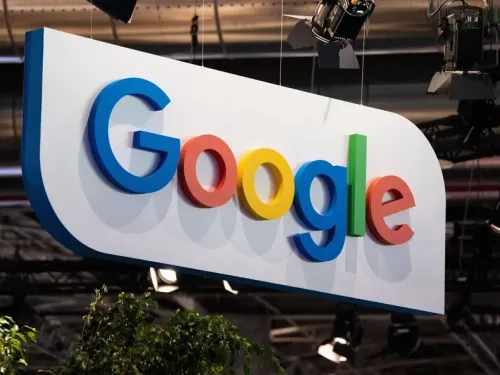
The internet has radically transformed the way we search for information, and Google has emerged as the main player in this revolution. A recent study, cited in a publication by Olhar Digital, explores the reasons behind the search engine's dominance, pointing to a combination of factors including technological evolution, user trust, and cultural adaptation. This article delves into the mechanisms that have solidified Google as the globally preferred search tool, analyzing everything from its innovations in artificial intelligence to the psychological role it plays in contemporary society.
The Psychology of Convenience: Why Do We Choose Google?
The most immediate answer to Google's popularity lies in its practicality. Since its launch in 1998, the search engine has prioritized speed and accuracy, characteristics that resonate with the human need for quick answers. A study by the University of Brasília analyzed search terms in Google Trends between 2004 and 2014, identifying that Brazilian users associate the platform not only with information searches but also with solving everyday problems like word definitions, health issues, and even philosophical dilemmas. This versatility has turned Google into an extension of human cognition, a phenomenon known as the "Google effect," which describes the tendency to rely on the internet as external memory.
The tool also capitalized on the transition to mobile devices. By 2015, more than half of global Google queries already came from smartphones, reinforcing the idea that instant accessibility is crucial. When compared to encyclopedias or books, the search engine eliminates physical and temporal barriers, allowing users to find data in seconds, whether during a work meeting or in the middle of a casual conversation.
The AI Revolution: From Chatbot to Conversational Search
Google has not remained a static repository of links. Its integration with artificial intelligence, highlighted in the announcement of "AI Mode," redefines the interaction between humans and machines. This feature, currently being tested for Google One AI Premium subscribers, allows users to ask complex questions and receive structured answers, as if they were talking to an expert. For example, a query about "climate change" can generate a summary with causes, effects, and solutions, accompanied by links to specialized sources.
This innovation is based on Gemini 2.0, a language model that not only reproduces information but contextualizes it. By solving mathematical equations, explaining programming concepts, or debating philosophy, Google is becoming a platform for adaptive learning. Rob Stein, the company's vice president, argues that this approach encourages bolder questions, transforming research into a "dynamic conversation." However, critics warn that the system's self-sufficiency may reduce traffic to external sites, impacting content creators who rely on organic access.
Building Trust: Algorithms and Perception of Authority
Trust is an invisible pillar behind Google's success. The University of Brasília study reveals that over a decade, users have come to treat the search engine as an authoritative source, comparable to experts or academic institutions. This is partly due to the platform's ability to aggregate and synthesize information from multiple sources, presenting it coherently.
The "define:" functionality, which provides meanings directly on the results page, exemplifies this dynamic. By typing "define:creativity," the user receives an instant explanation, eliminating the need to click on external links. This convenience, however, raises questions about the centralization of knowledge. If Google can answer any question, what is the future role of educators, journalists, and scientists?
Cultural Impact: The Verb "To Google" and New Sociability
Google's influence transcends the technological sphere, shaping habits and even language. The cited study highlights that the term "to google" has already been incorporated into popular vocabulary as a synonym for "searching for information." This phenomenon reflects a profound change in sociability: sharing links or discussing search results has become an integral part of social interactions, both online and offline.
The tool has also changed the way we plan everyday activities. Before visiting a restaurant, we check reviews; before a trip, we research routes; even medical decisions go through a quick Google search. This dependence generates a feedback loop: the more we use the search engine, the more it learns from our patterns, offering personalized results that reinforce its usefulness.
Challenges and Controversies: Between Dependence and Privacy
Google's dominance is not without criticism. The same convenience that attracts users raises concerns about privacy and data monopoly. Each search, click, and time spent on a page is recorded, feeding algorithms that influence everything from advertising to election results. Moreover, the tendency to blindly trust the search engine's answers can lead to the spread of misinformation, especially when unverified sources occupy top rankings.
The University of Brasília study points to another dilemma: by simplifying access to knowledge, Google may be reducing the depth of learning. Users tend to memorize less information, trusting that they can "always search again." This phenomenon, known as digital amnesia, challenges educators to rethink teaching methodologies in an era where answers are a click away.
Conclusion: Google as a Mirror of Contemporary Society
The rise of Google as a universal research tool is not just a technological triumph but a reflection of the current society's aspirations and limits. It encapsulates the human desire for efficiency, immediate knowledge, and global connection, while also exposing vulnerabilities such as technological dependence and erosion of privacy.
Looking forward, the challenge will be to balance the convenience offered by the search engine with the need to preserve critical thinking and diversity of sources. Meanwhile, Google will continue to evolve, not as a mere intermediary of information, but as an active participant in shaping how we understand and interact with the world.
Add new comment